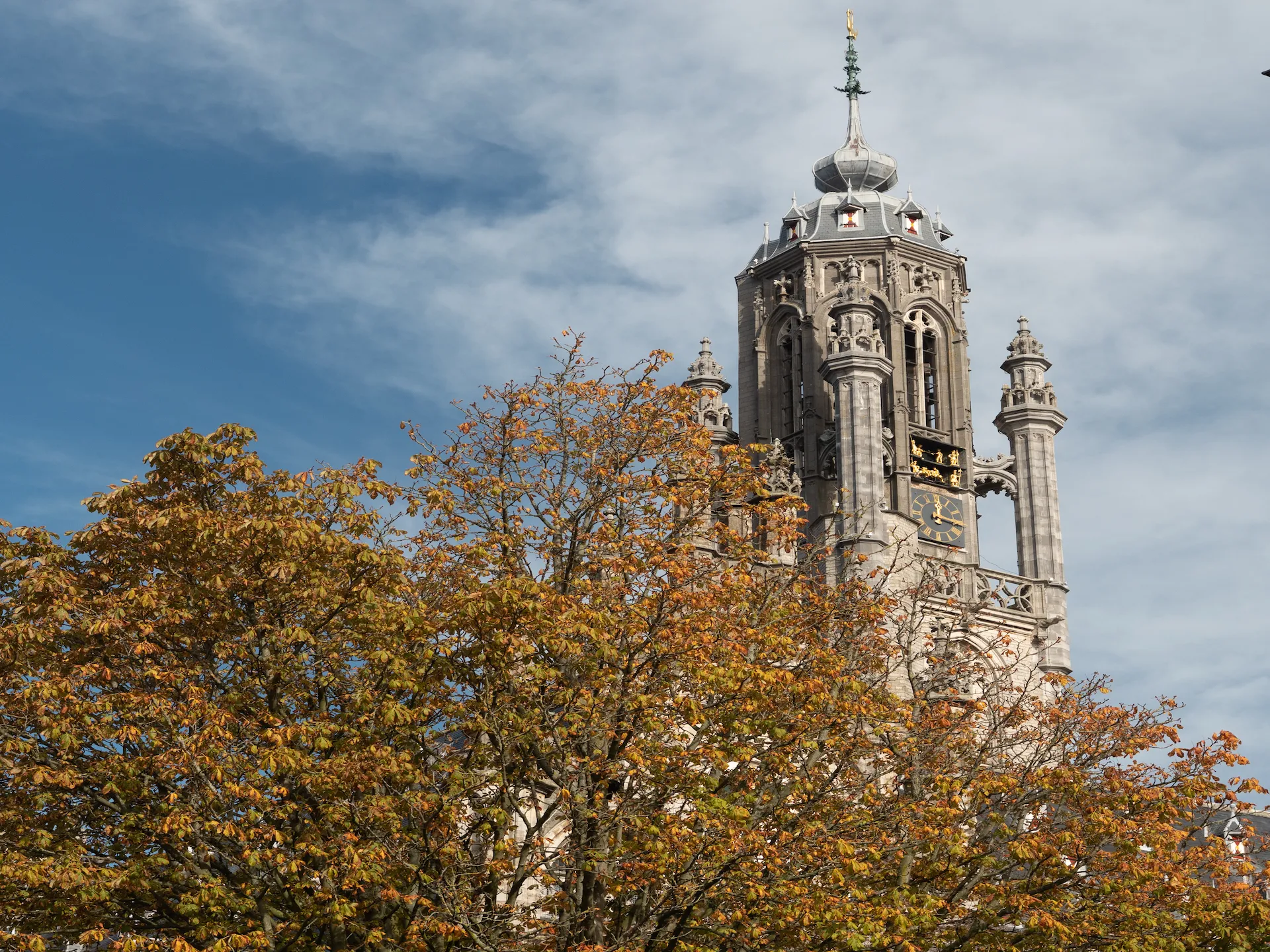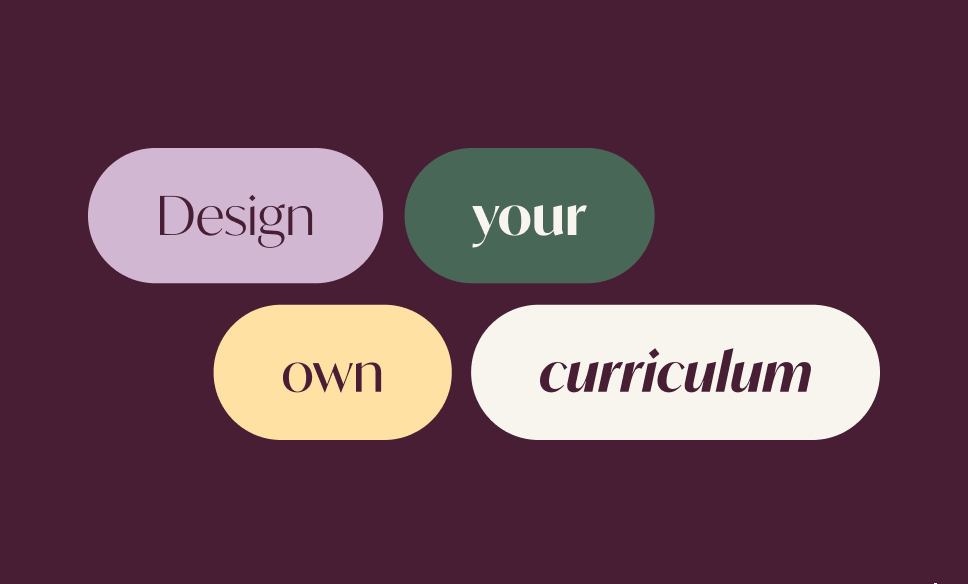Curriculum
Curriculum
Design your own Bachelor’s program based on your interests, passions and talent
We offer a three-year Bachelor’s in Liberal Arts & Sciences. This program is flexible by design because learning is never one-size-fits-all. So you choose your courses and build the program that you want. To meet the graduation requirements, you do have to keep some things in mind. You need to pass 24 courses in total. The mandatory first year Personal & Professional Development (PPD) course is one of these. You will also need to complete six courses at the most advanced (300-)level, including one research intensive course. You’ll also complete a digital Liberal Arts & Sciences Portfolio that ties your learning together and showcases your academic growth.
You graduate with:
- 24 courses
- 6 300-level courses
- 1 research-intensive course
- 1 portfolio
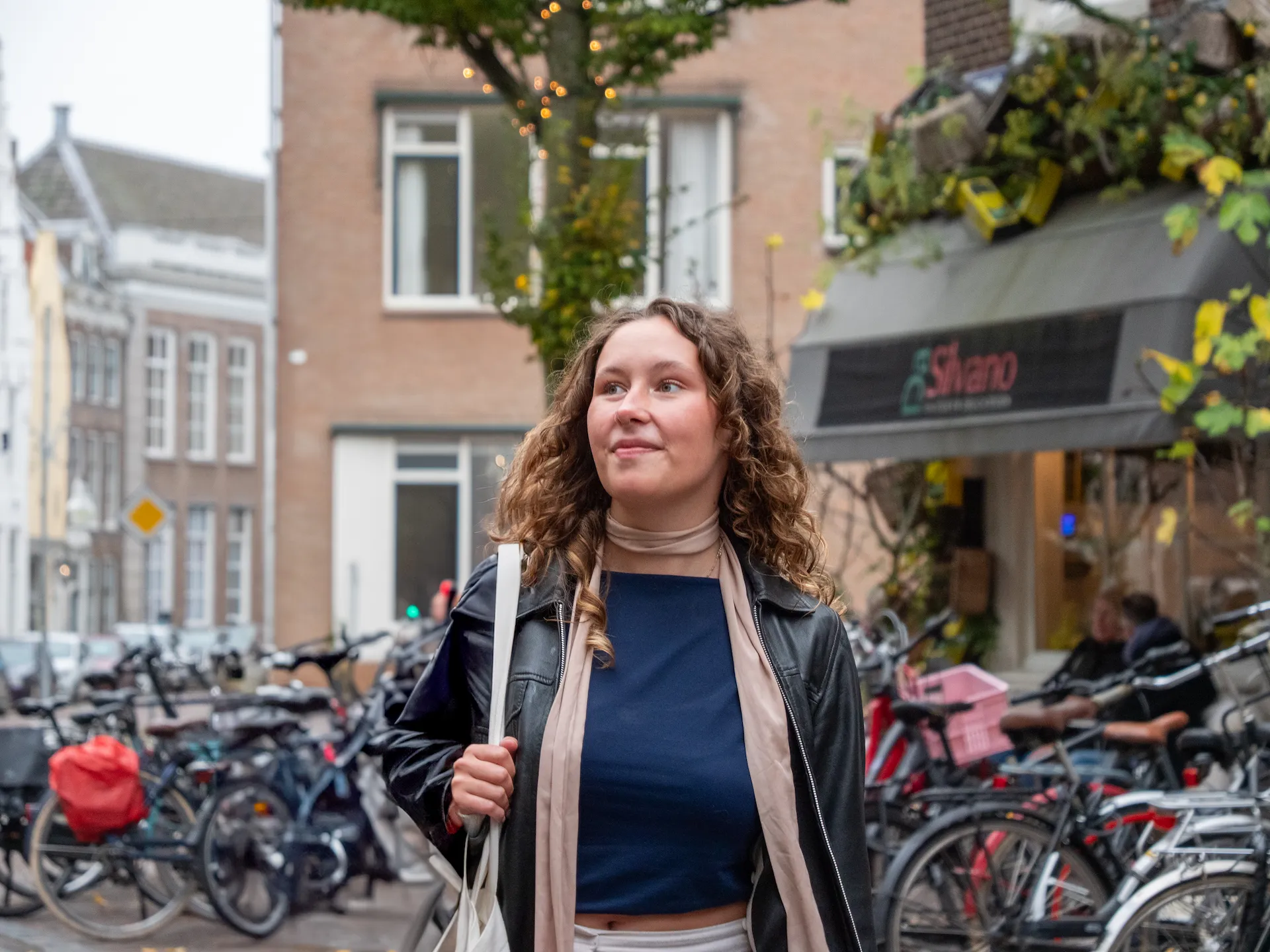
Personal & Professional Development
Personal & Professional Development
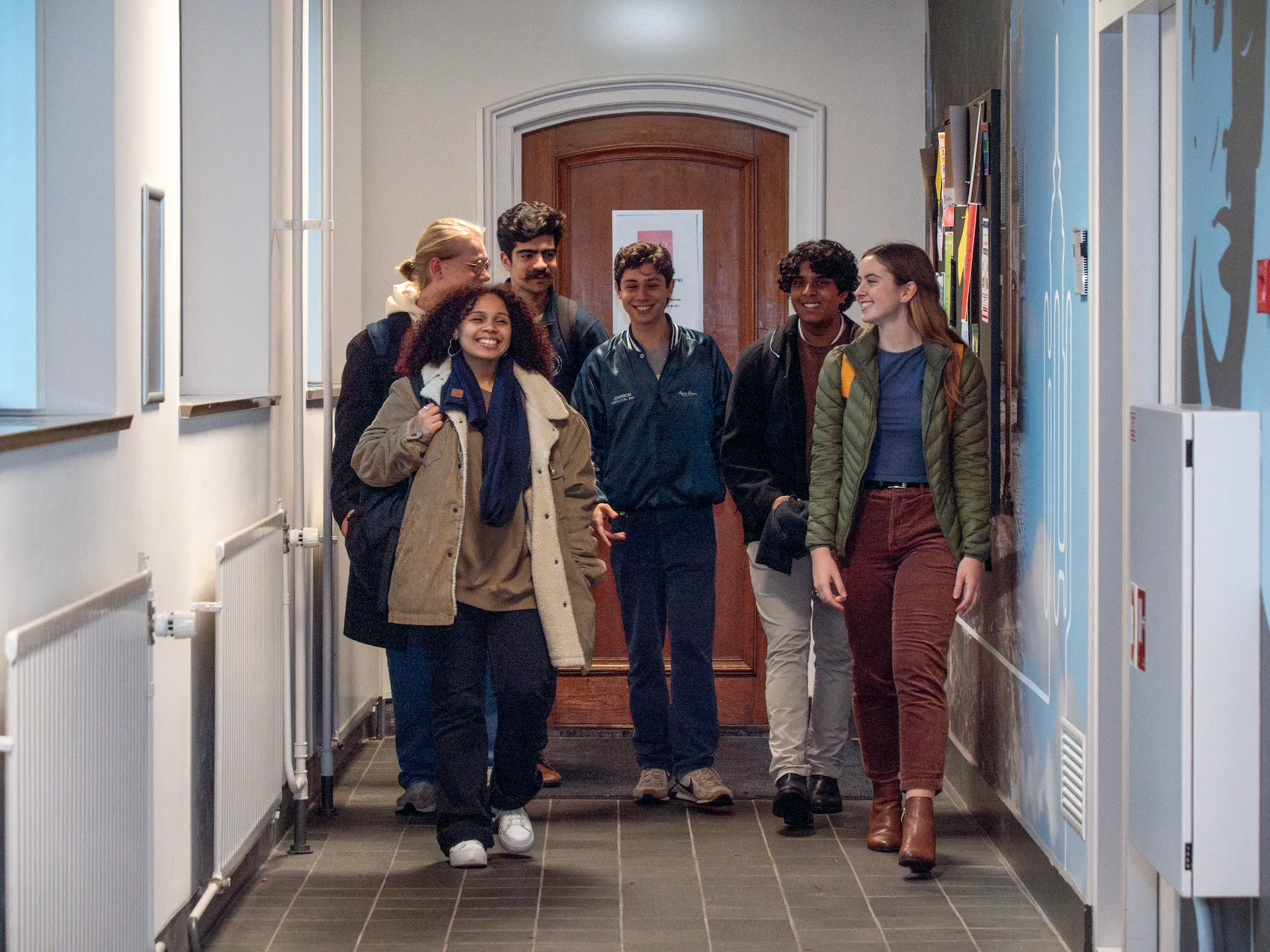
Community Engaged Learning
Community Engaged Learning

Portfolio
Portfolio
Each year is split into two semesters. In each semester, you take four courses, 24 in total. These courses are the building blocks of your degree. Aside from PPD in your first year, you can choose any introductory course (or 100-level) from the get-go. Some of the more advanced courses (200-or 300-levels) are locked behind what we call gateway courses. These gateways build the skills you need to succeed in the higher levels.
In your later semesters, you will still have access to 100-level courses, but you have opened up more options by taking gateways. You will soon encounter both core and responsive courses. Core courses teach the most important content and skills in that specific field, so you are well prepared for your future, including a Master’s. Responsive courses change more regularly because they play into current issues, student interests and challenges in society.
Curriculum in a Nutshell
Curriculum in a Nutshell
In just a few minutes, discover how UCR’s Liberal Arts & Sciences program works. See how you can combine disciplines and shape your own curriculum.

Research-intensive Course
Research-intensive Course
One of the final things you’ll have to choose, is a research-intensive course. These are courses taught at the 300-level, where you focus on doing research on your own or with others. Research is a core part of your academic journey at UCR. You’ll learn to think like a researcher, ask questions, analyze evidence, and form your own perspective.
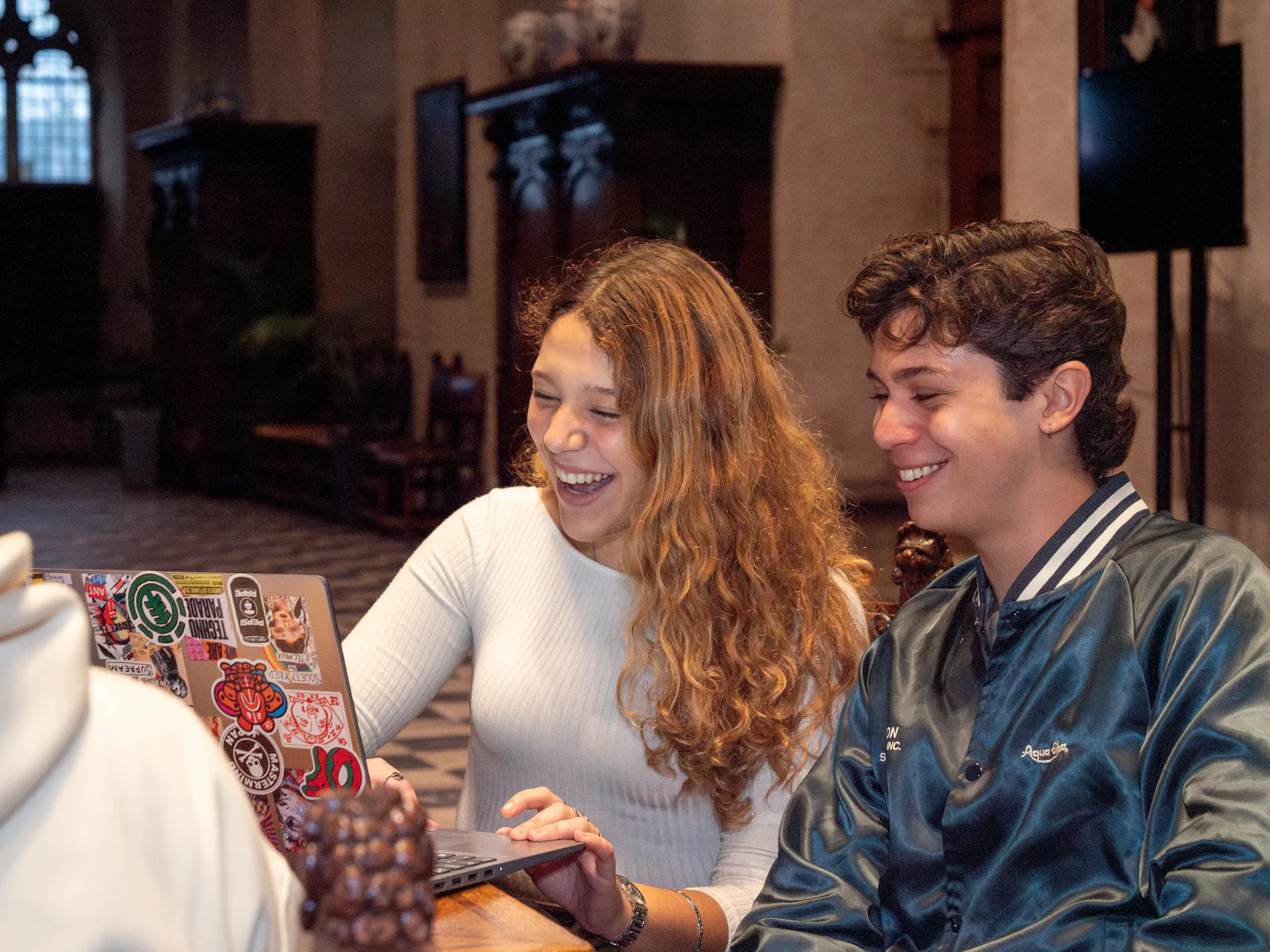
Your Degree
Your Degree
Your Degree
Your Degree
Once you meet all the requirements, we look at what you have done. You will always graduate with a Liberal Arts & Sciences degree, and depending on your course choices, you graduate with either a Bachelor of Arts or a Bachelor of Science. You can even have a major listed on your diploma if you have taken enough courses in one of our clusters. A cluster is a combination of four or five fields of study that make sense together.
Bachelor of Science (BSc)
You graduate with a Bachelor of Science if you complete 12 or more courses of which 3 need to be at the 300-level in the Bachelor of Science Clusters: Data Science & Intelligent Systems, Environment & Sustainability or Health, Cognition & Behavior.
Cluster-specific Major
If you take at least 10 courses of which 3 300-levels in a particular cluster, you get a cluster-specific major listed on your diploma.
Go on Exchange (Optional)
Go on Exchange (Optional)
Want to broaden your academic horizon or experience student life at a different university? At UCR, you have the opportunity to go on Exchange, studying at another institution either in the Netherlands or abroad. You can join one of UCR’s own exchange programs or choose from a wide range of partner universities via Utrecht University.
UCR students have studied in places like Australia, Canada, Japan, France, and even closer to home in cities like Eindhoven. Whether you’re looking for a new academic perspective or cultural adventure, there’s a program to match your goals. Exchange is only possible in your fourth or fifth semester, but planning starts early, so it’s never too soon to start thinking about where you’d like to go!
Academic Internships (Optional)
Academic Internships (Optional)
An Academic Internship at UCR is a 200-level course that allows you to connect your academic learning with hands-on experience, all under the guidance of a UCR examiner. There are two ways to structure your internship. In an internal internship, your project is based entirely at UCR and is supervised and assessed by two UCR faculty members. In an external internship, you find and work with an organization outside of UCR. In this case, you’ll need an on-site supervisor within the organization who can guide your work and ensure it meets academic standards, alongside support from your UCR examiner.
If you choose to pursue an academic internship, it’s your responsibility to find and arrange the placement. While you can talk to professors, UCR does not have a dedicated office to find internships for you.
